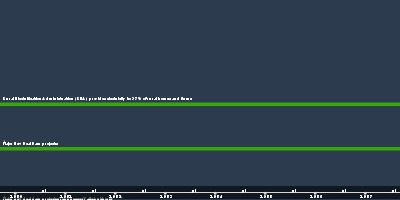Great Depression (1 gen 1929 anni – 1 gen 1939 anni)
Descrizione:
see Hoover tab and smoot tabBonus Army: A group of fifteen to twenty thousand unemployed World War I veterans who set up camps near the Capitol building in 1932 to demand immediate payment of pension awards due in 1945.
As the depression tightened its grip, new entries in the American vocabulary reflected mounting frustration. Many evicted people settled in shantytowns made of packing crates and other refuse, which they dubbed Hoovervilles, using Hoover blankets (newspapers) to keep warm. Bankrupt farmers banded together to resist the bank agents and sheriffs who sought to evict them from their land. Thousands of midwestern farmers took a farmers’ holiday and joined the Farmers’ Holiday Association, which protested against falling commodity prices by cutting off supplies, barricading roads, and dumping milk, vegetables, and other foodstuffs onto the roadways. Agricultural prices fell so low that the group advocated a government-supported farm program — drawing on Populist ideas from the 1890s
In the industrial sector, layoffs and wage cuts led to violent strikes. When coal miners in Harlan County, Kentucky, struck over a 10 percent pay cut in 1931, the mine owners called in the state’s National Guard, which crushed the union. A 1932 confrontation between auto workers and security forces at the Ford Motor Company’s giant River Rouge factory outside Detroit left five workers dead and dozens of strikers and police injured. In fields and on shop floors, the depression moved the producers of the nation’s food and goods to organize and agitate.
Veterans staged the most publicized — and tragic — protest. In the summer of 1932, the Bonus Army, a loose caravan of between fifteen thousand and twenty thousand unemployed World War I veterans, drove, hitchhiked, or simply walked to Washington, D.C. to demand immediate payment of pensions due in 1945. “We were heroes in 1917, but we’re bums now,” one veteran complained bitterly. While their leaders unsuccessfully lobbied Congress, the Bonus Army set up camps near the Capitol building. After several months of “occupation,” Hoover deployed regular army troops under the command of General Douglas MacArthur, who forcefully evicted the marchers and burned their encampment to the ground. When newsreel footage showing the U.S. Army attacking veterans reached movie theaters across the nation, Hoover’s popularity plunged even further. Americans had applauded when Coxey’s army was scattered in 1894; their nearly opposite reaction to the demise of the Bonus Army captured the change in public attitude in 1932.
Aggiunto al nastro di tempo:
Data:
1 gen 1929 anni
1 gen 1939 anni
~ 10 years
